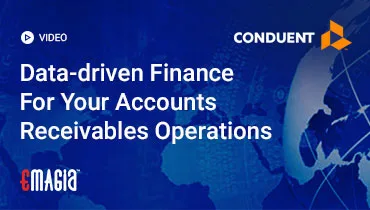Introduction
In the realm of financial management and business operations, the term “Reporting Month” holds significant importance. It refers to a specific period, typically spanning from the first to the last day of a calendar month, during which organizations collect, analyze, and summarize financial and operational data for reporting purposes. This standardized timeframe enables businesses to assess performance, track progress towards goals, and make informed decisions based on timely insights.
Understanding the Concept of Reporting Month
Definition and Purpose
A Reporting Month is a defined period used for the systematic collection and analysis of financial data and key performance indicators (KPIs). It allows businesses to monitor their financial health, operational efficiency, and overall performance on a regular basis.
Importance in Financial Management
Regular monthly reporting facilitates transparency and accountability within an organization. It provides stakeholders with consistent updates on financial standings, enabling timely interventions and strategic planning.
Components of a Monthly Report
Financial Statements
These include income statements, balance sheets, and cash flow statements that provide a snapshot of the company’s financial position during the reporting month.
Key Performance Indicators (KPIs)
KPIs are metrics that reflect the company’s performance in various areas such as sales, customer satisfaction, and operational efficiency.
Budget Analysis
This involves comparing actual expenditures against the budgeted amounts to identify variances and areas requiring attention.
Executive Summary
A concise overview highlighting significant achievements, challenges, and strategic decisions made during the month.
Best Practices for Monthly Reporting
Consistency in Reporting
Maintaining a consistent format and structure in monthly reports ensures comparability over time and aids in trend analysis.
Use of Visual Aids
Incorporating charts, graphs, and dashboards can enhance the clarity and effectiveness of the reports.
Automation and Integration
Leveraging software tools to automate data collection and report generation can improve accuracy and efficiency.
Collaboration Across Departments
Engaging various departments in the reporting process ensures comprehensive and accurate data representation.
Challenges in Monthly Reporting
Data Accuracy
Ensuring the accuracy of data collected from multiple sources can be challenging and requires robust validation processes.
Timeliness
Meeting reporting deadlines necessitates efficient workflows and clear communication among team members.
Resource Constraints
Limited resources can hinder the ability to conduct thorough analyses and produce detailed reports.
How Emagia Enhances Monthly Reporting
Automation of Financial Processes
Emagia offers automation solutions that streamline the collection and processing of financial data, reducing manual efforts and errors.
Advanced Analytics
With Emagia’s analytics tools, organizations can gain deeper insights into their financial performance, enabling data-driven decision-making.
Integration Capabilities
Emagia’s platform integrates seamlessly with existing systems, facilitating smooth data flow and consolidated reporting.
Enhanced Compliance
By ensuring accurate and timely reporting, Emagia helps organizations maintain compliance with financial regulations and standards.
Frequently Asked Questions
What is the difference between a reporting month and an accounting period?
A reporting month is a specific type of accounting period, typically spanning one calendar month, used for regular financial reporting. An accounting period can vary in length and may be monthly, quarterly, or annually, depending on the organization’s reporting requirements.
Why is monthly reporting important for businesses?
Monthly reporting provides timely insights into a company’s financial health, enabling proactive decision-making, performance tracking, and early identification of issues.
How can automation improve the monthly reporting process?
Automation reduces manual data entry, minimizes errors, accelerates report generation, and allows finance teams to focus on analysis and strategic planning.
What are common challenges faced during monthly reporting?
Challenges include ensuring data accuracy, meeting tight deadlines, managing large volumes of data, and coordinating across departments.
How does Emagia’s solution support monthly reporting?
Emagia’s platform automates data collection and processing, provides advanced analytics for deeper insights, integrates with existing systems for seamless data flow, and ensures compliance with financial reporting standards.



